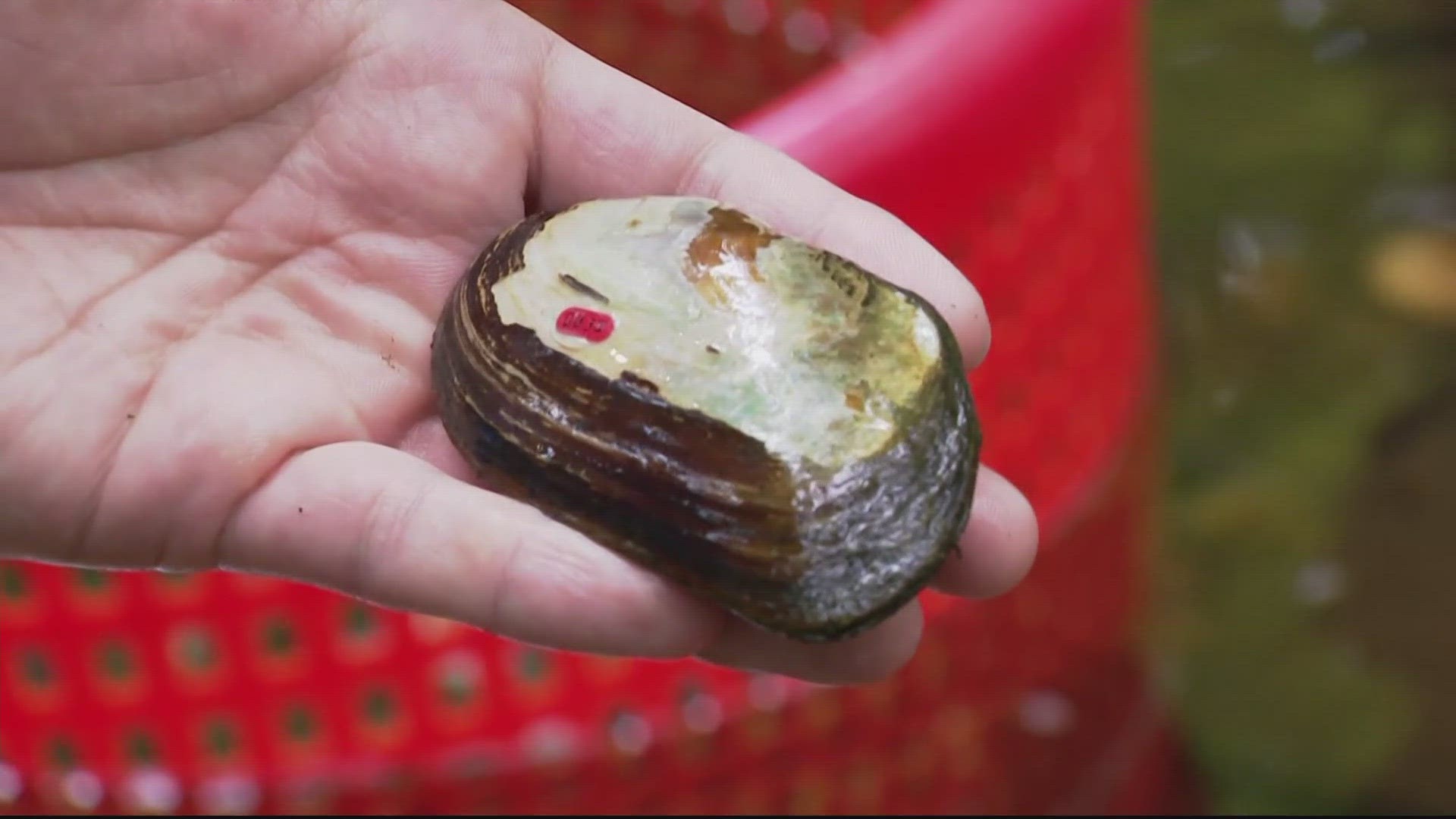RESTON, Va. — Researchers from Virginia Tech are using streams in the Commonwealth to help clean the Potomac River and the Chesapeake Bay. The researchers were at Snakeden Creek in Reston stocking the stream with 1,600 freshwater mussels.
"They're really strong, really good filters, and they can help capture and clean the water before it gets to the Chesapeake Bay," said Jess Jones, a restoration biologist with U.S. Fish and Wildlife and Virginia Tech. They can help the Bay be healthier, and they can also help the Potomac River be healthier."
The crew will also stock another stream in Reston called The Glade, and will install monitors upstream and downstream to gauge the success of the mussels.
Water quality within urban streams is often poor, resulting from various factors throughout the watershed such as enhanced runoff due to impervious cover, road salting, and the absence of effective stormwater controls. Reston was developed prior to the enactment of strict stormwater management laws. Thus, runoff from adjacent land uses flows directly into streams within the community resulting in severe stream channel and bank erosion, downstream sediment deposition, degraded water quality, and water temperature spikes.
Over the past 15 years, Wetland Studies and Solutions, Inc. (WSSI) has restored streams within the Snakeden, Glade and Colvin Run watersheds in Reston to reconnect the streams with their floodplains, reduce extensive stream erosion to decrease downstream sedimentation and associated nutrient export, and improve the riparian corridors that are so heavily utilized by the community.
More information on the project can be found here.

